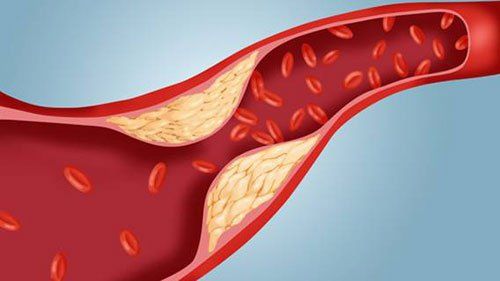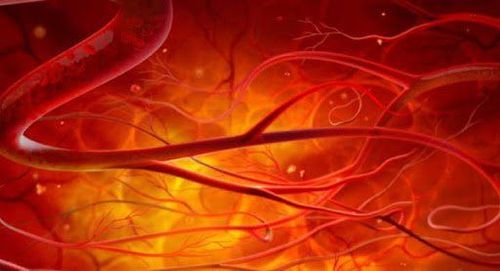This is an automatically translated article.
What's wrong with sleeping too much, is it good to sleep too much? Because it is not always good to sleep a lot and this harm will accumulate over time and then occur.
1. What are the harmful effects of sleeping too much?
According to a study presented at the 70th Annual Scientific Meeting of the American Heart Association, sleeping about 6-7 hours a night has the lowest risk of stroke and heart attack leading to death compared to with those who slept less than 6 or more than 7 hours.
On the contrary, there is also a study that shows that adults who sleep more than the recommended amount (6-7 hours/night) have a higher risk of heart disease and death. According to this study, the incidence of heart disease increased from 7.8% (for an average sleep time of 6 to 8 hours/night) to 8.4% (for an average of 8 to 9 hours of sleep/night). night); 10.4% (average sleep time is 9 - 10 hours/night) and 14.8% (average sleep time is >10 hours/night). Sleeping less than 6 hours a night also faces a high rate of heart disease of about 9.4%. Thus, the answer to the question of what harms too much sleep is to increase the risk of heart disease and death.
Along with that, a study published in the European Journal of Cardiology also found that daytime napping was associated with an increased risk of heart disease and death in people who slept more than 6 hours. hours/night, but not in those who slept less. These are studies that explore the link between baseline cardiovascular risk and sleep duration, the researchers say, adding to evidence that sleep is similar to diet, smoking, and exercise. Exercise, can play a determining role in a person's cardiovascular risk.
Discussing what's wrong with sleeping too little or sleeping too much, the study's authors said that sleeping 6 to 7 hours a night is associated with better cardiovascular health.
2. Why can too much sleep lead to heart disease, the risk of death?
According to the research teams, the study results held true even after accounting for other known conditions or risk factors for heart disease or stroke. The increased risk of heart disease and death in people who sleep more than the recommended amount may be due to underlying health problems.
In studies, participants are followed for a long time to determine whether the cause of death is a heart attack, heart failure or stroke.
Based on responses to a survey question about an average sleep duration of less than 7 hours, the researchers divided the participants into 3 groups and then assessed the risk of cardiovascular disease due to other factors. The following factors:
Atherosclerosis (ASCVD), hardening of the arteries : Includes factors such as age, sex, race, blood pressure and cholesterol levels.
Atherosclerosis (ASCVD), hardening of the arteries : Including factors such as age, sex, race, blood pressure level and cholesterol level. C-reactive protein (CRP) levels: This is an important inflammatory marker known to be associated with heart disease.

Ngủ nhiều quá bị gì là thắc mắc của một số bạn trẻ hiện nay
According to researchers, unlike some risk factors for heart disease that cannot be changed such as age or genetics, sleep habits can be adjusted. Therefore, when visiting the doctor, the doctor will ask the patient about the sleep status.
According to researchers, unlike some risk factors for heart disease that cannot be changed such as age or genetics, sleep habits can be adjusted. Therefore, when visiting the doctor, the doctor will ask the patient about the sleep status.
However, not only sleeping more or less, but also need to assess the depth and quality of sleep. For example, sleep apnea, a sleep disorder that results in frequent awakenings, is being shown to be linked to cardiovascular disease.
Studies have found that the risk of heart disease and death is increased with less or more than 6-7 hours of sleep per night. However, more research is needed to prove the cause and effect of this problem.
Please dial HOTLINE for more information or register for an appointment HERE. Download MyVinmec app to make appointments faster and to manage your bookings easily.
Reference sources: medicinenet.com, sciencedaily.com, webmd.com












